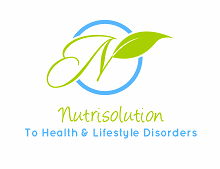Starchy Veggies
Some vegetables are better than others when you’re watching your triglycerides. Limit how much you eat of those that are starchy, like corn and peas. That way, your body won’t turn the extra starch into triglycerides. There are plenty of other options, like cauliflower, kale, and mushrooms, to choose from.
Baked Beans With Sugar or Pork Added
Beans have fibre and other nutrients going for them. But if they’re made with sugar or pork, they may not be the best choice. The label on the can should say what’s in there, and how much sugar and fat you’re getting. Switch to black beans, which are a great source of fibre and protein, without saturated fats or added sugar.
Too Much of a Good Thing
No doubt: Fruit is good for you, especially if you’re having a piece of fruit instead of a rich dessert. But when you have high triglycerides, you may need to limit yourself to 2-3 pieces of fruit a day. That way, you won’t get too much of the natural sugars that are in fruit. If you’re having dried fruit, remember that the serving size is much smaller: 2 tablespoons of raisins, for example.
Alcohol
You may think of alcohol as being good for your heart. But too much of it can drive up your triglyceride levels. That’s because of the sugars that are naturally part of alcohol, whether it’s wine, beer, or liquor. Too much sugar, from any source, can be a problem. Your doctor may recommend that you not drink at all if your triglyceride levels are very high.
Canned Fish Packed in Oil
Fish is good for your heart. But when you’re buying canned fish, check the label to see if it’s packed in oil. You’re better off buying canned fish that’s packed in water. Usually, both are available on the same shelf at the grocery store.
Coconut
Coconut is trendy. You can find coconut milk, coconut water, coconut flakes, coconut oil, and the fruit itself. Some say coconut has health benefits, but it’s also high in saturated fats, so ask your doctor if you should limit it or avoid it completely.
Starchy Foods
Eat too much pasta, potatoes, or cereals and your body can turn them into triglycerides. You can still have them, but you have to stay within proper serving sizes. A serving is a slice of bread, 1/3 cup of rice or pasta, or half a cup of potatoes or cooked oatmeal.
Sugary Drinks
A lot of the sugar you get may come from a glass. Whether you drink sweet iced tea, regular soda, fruit juice, or a syrupy coffee drink, you may be getting more sweetness than your body can handle. It may turn some of that sugar into triglycerides. So when you’re cutting back on sugar, remember to include your drinks in that, too. Limit yourself to no more than a cup (8 ounces) of sugar-sweetened drinks per day.
Honey or Maple Syrup
You may think of honey and maple syrup as being healthier or more natural than refined sugar. But like sugar, they can raise your triglyceride levels. When you’re working on lowering your triglycerides, cut down on sugary sweeteners across the board, even if they’re not table sugar.
Baked Goods
Because of your high triglycerides, you should limit the saturated fat in your diet. That includes the saturated fat in the butter that’s baked into pastries. You should also avoid trans fats altogether. Check the nutrition facts label to be sure.
High-Fat Meats
You don’t have to give up meat completely. But you should choose lean cuts and trim any visible fat. Meat has saturated fat in it, so you want to limit that as much as possible to help bring your triglyceride levels down.
Butter or Margarine
Use olive oil as a replacement for butter and margarine, which may have too much saturated fat or trans fat, when cooking meats and vegetables or making salad dressing. Canola, walnut, and flaxseed oils are also great alternatives.
Source: WebMD.com




